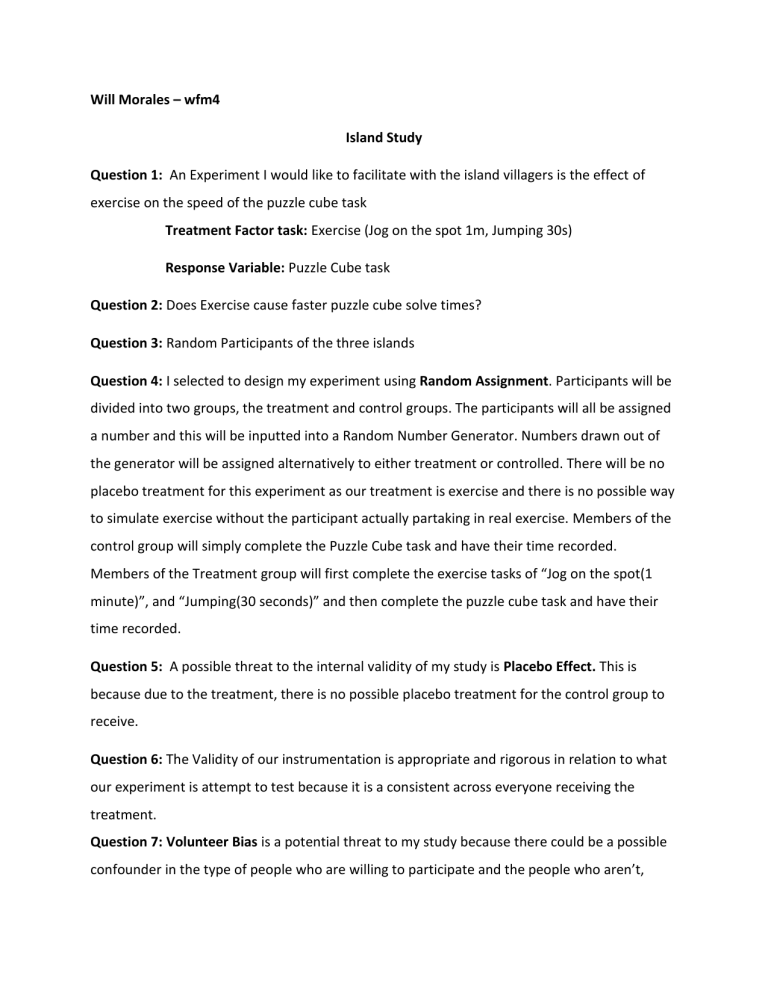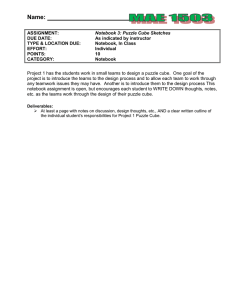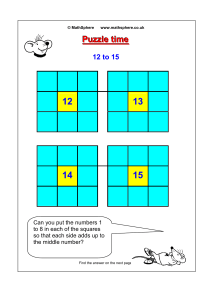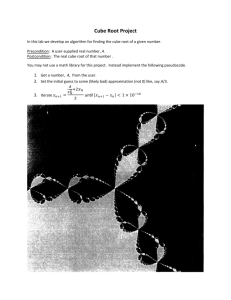Island Study
advertisement

Will Morales – wfm4 Island Study Question 1: An Experiment I would like to facilitate with the island villagers is the effect of exercise on the speed of the puzzle cube task Treatment Factor task: Exercise (Jog on the spot 1m, Jumping 30s) Response Variable: Puzzle Cube task Question 2: Does Exercise cause faster puzzle cube solve times? Question 3: Random Participants of the three islands Question 4: I selected to design my experiment using Random Assignment. Participants will be divided into two groups, the treatment and control groups. The participants will all be assigned a number and this will be inputted into a Random Number Generator. Numbers drawn out of the generator will be assigned alternatively to either treatment or controlled. There will be no placebo treatment for this experiment as our treatment is exercise and there is no possible way to simulate exercise without the participant actually partaking in real exercise. Members of the control group will simply complete the Puzzle Cube task and have their time recorded. Members of the Treatment group will first complete the exercise tasks of “Jog on the spot(1 minute)”, and “Jumping(30 seconds)” and then complete the puzzle cube task and have their time recorded. Question 5: A possible threat to the internal validity of my study is Placebo Effect. This is because due to the treatment, there is no possible placebo treatment for the control group to receive. Question 6: The Validity of our instrumentation is appropriate and rigorous in relation to what our experiment is attempt to test because it is a consistent across everyone receiving the treatment. Question 7: Volunteer Bias is a potential threat to my study because there could be a possible confounder in the type of people who are willing to participate and the people who aren’t, however this is unavoidable when conducting studies with human subjects.



